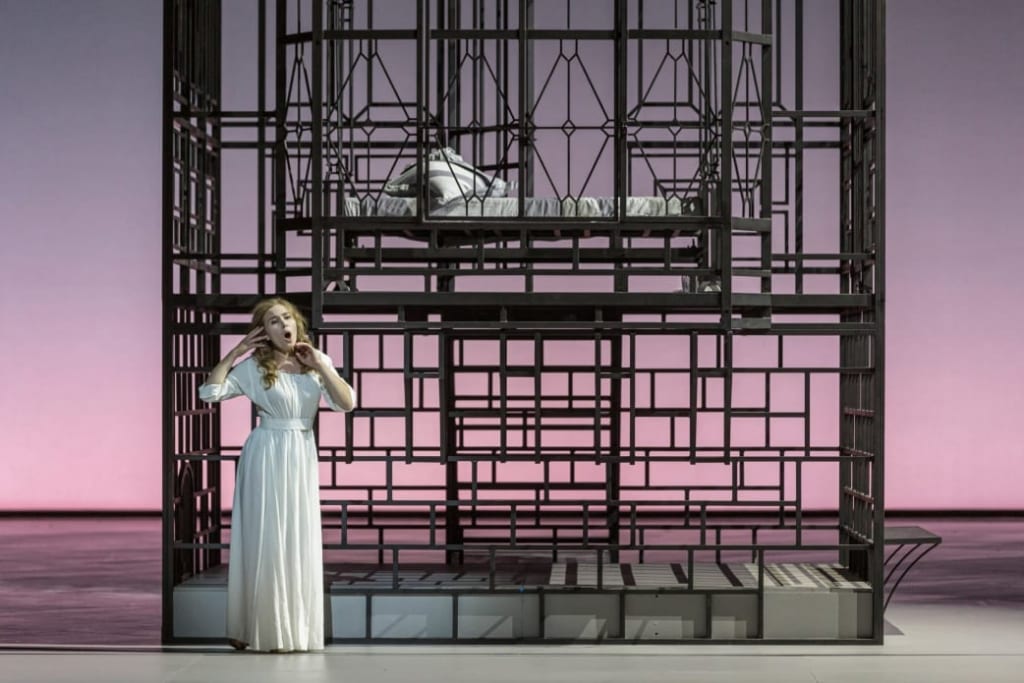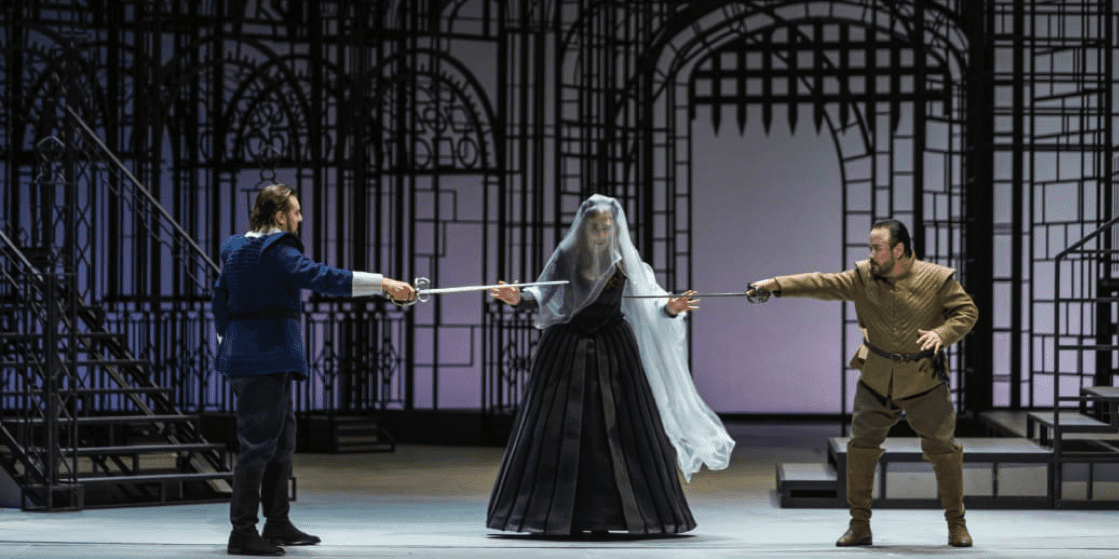Bellini’s last opera, I Puritani, premiered in Paris at the Théâtre-Italien in 1835 and it was an immediate success. Just a few months later an illness caused the composer’s premature death. The libretto, based on the romantic play Têtes Rondes et Cavalieres by Jacques-François Ancelot and Joseph Xavier Saintine, was written by the Count Carlo Pepoli an Italian émigré who was in Paris at the same time as Bellini.
The opera takes place in England during the English Civil War and the subject can’t get more conventional: a love triangle between the royalist Arturo, the daughter of a republican Elvira, and the leader of the Puritans, Riccardo. However, as in Bellini’s previous operas, I Puritani is centred completely around a female character who is essentially a victim of the passions, weaknesses and ruthlessness of the men around her and becomes the character that ends up bearing all the emotional weight of the consequences of their actions. Her emotions are expressed musically with the most poignant melodic lines combined with vertiginous coloratura that are never exploited for their own sake but always aim to define the psychology of the character and express the drama.
The production that I attended at the Opera de Paris is a revival of the 2013 production directed by Laurent Pelly. Here, the director imagines a world as seen through the eyes of Elvira: a woman caught up in a stressful civil war and problematic love that means she is living on the borderline between reality and madness. The stage setting created to evoke Pelly’s concept is an open space with a rotating ironworks suggesting the Stuart architecture and at the same time resembling a cage where the entrapped Elvira lives surrounded by people dressed in austere and squared clothes moving like pawns on a chess board. She is the only bright element on the stage, struggling to get out of that cage and naively dreaming of a romantic love. However, this valid idea was not quite developed during the performance and this iron framework spinning around in the end resulted in a repetitive movement. Also, the director could have made more use of the background where sometimes images were projected. Everything appeared cold and rigid and in the long run it was detrimental to an opera that is the pinnacle of romanticism. The conductor Riccardo Frizza didn’t’ help to warm up the atmosphere: he conducted correctly and paid extreme attention not to cover the voices, but not much passion was coming out from the orchestra pit.
However, the audience was treated to some outstanding singing.
The soprano Elsa Dreisig in the role of Elvira captured the audience with the power and agility of her voice. She interpreted the naive borderline personality credibly and she sang the beautiful long arias with intensity, using the coloraturas functionally as Bellini intended.

The tenor Francesco Demuro has a light voice that is nonetheless rather pure and limpid, but in such a huge hall its lack of real weight is unfortunate. However, his timbre is clear, his fraseggio elegant and he fearlessly tackled all the high notes, some of which must be sung in falsetto, bringing a youthful freshness to the character.
The baritone Igor Golovatenko, in the role of Riccardo has a powerful voice but his interpretation was quite conventional and not apt to the role of the jealous lover.
Uncle Giorgio, interpreted by a Nicolas Testé, has a voice that is in splendid shape and he appeared sympathetic because of his passionate acting and also his warm timbre. His was a strong and convincing interpretation.
‘Opera must make you weep, tremble and die’ Bellini once told Count Pepoli: that is definitely not the case with this production, which may be musically delightful but lacked the fire of romanticism.

